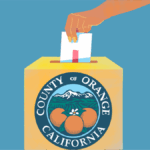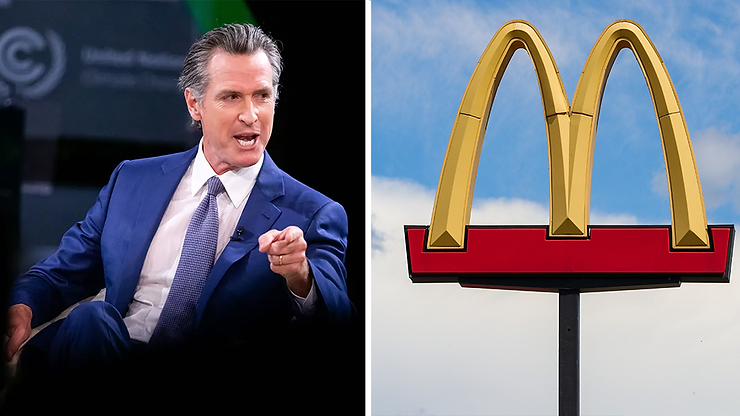“This new data should be a wake-up call for policymakers,” warned economist Christopher Thornberg.
Last year, Governor Gavin Newsom and his allies in Sacramento were warned by watchdog groups that raising fast food employees’ minimum wage to $20 per hour would be devastating to the industry. They moved forward unhindered. Now, California’s fast food industry, taxpayers, and overall economy, are paying the ultimate price.
Immediately following the passage of Assembly Bill 1228, California’s privately-owned fast food restaurants saw “unequivocal job losses” to the tune of 6,000 between September 2023—when the bill was signed—and April of last year—when the bill went into effect. Prior to that, the industry was seeing steady growth in both California and the U.S. as a whole. Between September 2022 and June 2023, the Golden State alone gained over 17,000 new jobs.
But, as of the beginning of this year, California’s fast food worker employment rate had already fallen significantly compared to that of Nevada, Oregon, and New York. As of last month, an estimated 16,000 jobs had been lost in the industry and fast food prices in California are up nearly 15%. Make no mistake—AB 1228 is directly to blame.
Meanwhile, during the same span of time, fast food employment grew nationwide by 0.8%, according to a study done by Pepperdine University. The study showed “a predictable pattern,” or correlation proving that “a sudden large change in the minimum wage for a specific sector implies… that employment growth will slow or decline.”
Of course, one needs only a basic understanding of economic theory to realize this principle. A bigger paycheck sounds appealing to employees until their hours are significantly cut and they stop receiving the same degree of benefits. It’s a basic principle—and yet it was widely ignored when business groups warned that “to offset costs of this 25% wage hike, local restaurants [be] forced to increase food prices, lay off employees and cut hours.”
Even newer data suggests that the situation is more severe than it originally appeared. “While the original (study) estimates suggested that employment in the sector had remained mostly flat in 2024, the revised data shows it actually declined by 3.2%, or 23,100 jobs,” the study suggests. “Additionally, we should note that these numbers may understate the true impact. A significant share- perhaps as many as half- of the limited-service restaurants included in the sector’s overall numbers are not part of a chain and therefore are not subject to the $20 minimum wage. Their employment growth or stability may be masking even greater job losses among the restaurants that are subject to the policy.”
“The employment losses in California’s fast-food industry are now evident, and they confirm what many had warned about: drastic wage hikes create real economic consequences, especially for entry-level workers,” said Christopher Thornberg, author of the Pepperdine study and a founding partner at Beacon Economics. “This new data should be a wake-up call for policymakers.”
Additionally, Tom Manzo, founder of the California Business and Industrial Alliance has fiercely criticized the increased minimum wage: “(The Pepperdine University) report is just the latest confirmation that Governor Newsom’s misguided fast-food minimum wage law is killing jobs across California,” he stated. “Instead of spending time launching a new podcast, our Governor should be focused on fixing his mistake for the sake of small business owners and their employees.”
AB 1228 was controversial not only for its minimum wage hike, but for a list of last-minute carveouts which arbitrarily exempted establishments that baked bread prior to a certain date. It was a move that seemingly benefitted billionaire investor, Panera Bread franchisee, and longtime Gavin Newsom donor Greg Flynn.
In spite of the overwhelming evidence to suggest wage hikes led to fewer fast food industry jobs, Newsom and his ilk are not done with the wage hikes. The California Fast Food Council, a new taxpayer-funded group, is suggesting an increase to $20.70 per hour. A memo written by the Service Employees National Union stated that, “As California’s fast-food industry grows, cooks and cashiers are doubling down on their fight across the state to win safe and healthy stores, stable hours, pay that keeps up with inflation, and training to understand their rights on the job.”
Ultimately, the memo takes into account only rising costs of living for their employees, and fails to recognize the negative effect that increased wages will have on taxpayers of the state.
“When will enough be enough?” asks Manzo.















